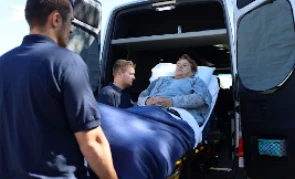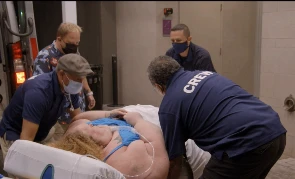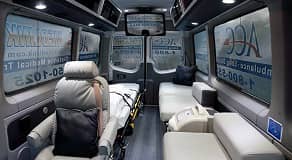Medicaid and Medicare beneficiaries are lucky to have several medical procedures and services covered by these healthcare schemes. Unfortunately, they still have several obstacles that hinder their access to medical care.
A significant example of these hindrances is the lack of transportation. According to a national survey in the United States, an estimated 3.6 million people delay or do not show up for their medical appointment due to inadequate transport options.
NEMT or Non-emergency Medical Transportation helps make transportation accessible to people who have no other means of getting to their medical appointments, especially those who are disabled or elderly. Besides, some have chronic diseases like cancer, obstructive pulmonary disease, diabetes, and kidney diseases.
In addition, clients with these medical conditions need to visit their healthcare providers for regular checkups and treatment. Unfortunately, limited transportation options can deny these people access to life-saving care and medical management. Similarly, lack of non-emergency medical transportation options seems to have a ripple effect on health status and the cost of care.
Missing medical appointments aggravates the effect of poor health conditions and leads to an increased need for pricey emergency transportation and excessive ER visits. Furthermore, the influence of NEMT in eliminating the need for medical emergency services demonstrates the cost-effective nature and importance of this service.
People who have medical conditions affecting their mental health will also find non-emergency medical transportation valuable. A recent study reports that most NEMT clients used the service to access psychological treatments. Similarly, 40% of NEMT Clients in New Jersey and 30% of NEMT clients in Nevada attended medical appointments for substance abuse treatment when they used the service.
The major stakeholders in the healthcare industry – the patients and the providers – are beginning to understand that improving the overall health and wellbeing of a particular population goes beyond clinical care.
A 2015 study shows that clinical care contributes only about 10 to 20% to healthcare outcomes, while the remaining influential factors involve socioeconomic status, health behaviors, and physical environment.
As mentioned earlier, lack of transportation has a detrimental effect on a population’s health status and increases the cost of hospitalization. In light of this, the American Hospital Association conducted a study to evaluate the factors contributing to inadequate transportation. These factors include:
A recent study shows that people with access to private transportation are less likely to miss a medical appointment than those who depend on public transportation. Besides, private NEMT organizations are committed to delivering excellent services. Therefore, they ensure that clients have a vehicle available whenever a medical visit is around the corner.
The prohibitive cost of some NEMT services may discourage people low -income earners from using the service. Fortunately, Medicaid covers non-emergency medical transportation to some extent.
Communities with improved transit systems are more likely to experience better healthcare outcomes. Furthermore, a good transportation network and facilities enhance health equity among people living in a community.
Although top NEMT firms offer long-distance medical transportation, others are ill-equipped to handle long-distance trips. However, a previous study reported a direct relationship between poorer health outcomes and the distance of the medical facility to a patient’s residence.
The aforementioned factors determine the groundwork for ensuring that the demand for NEMT tallies with the availability of transportation means. Also, policymakers need to ensure that the NEMT demand-supply issue improves in small communities before reaching out to big cities.
The role of non-emergency medical transportation in improving healthcare outcomes has been underestimated for so long. However, public health experts have recently assessed the benefits of this service to communities, and its necessity has been proven beyond doubt. Therefore, governments are encouraged to make NEMT more accessible to the masses by providing subsidies and supporting private NEMT firms.

When choosing a medical transport service provider, you must ensure to choose one that not only focuses on getting you to your destination, but also prioritizes using the safest, most conducive, and most efficient sets of vehicle fleets and equipment to do the job.

ACC Medlink appeared on the TLC television network reality show “1000 LB Sisters” to transport one of the cast members from Ohio to a doctor in Kentucky. ACC Medlink, four of its employees, and the journey they took with Tammy Slaton were featured in episode 6 of season 4.

ACC Medlink is proud to announce the addition of a new line of elite medical sprinter vans to our long distance medical transport fleet. This addition will allow ACC Medlink to continue to provide superior service and outstanding care for those in need of medical transport out of state...
